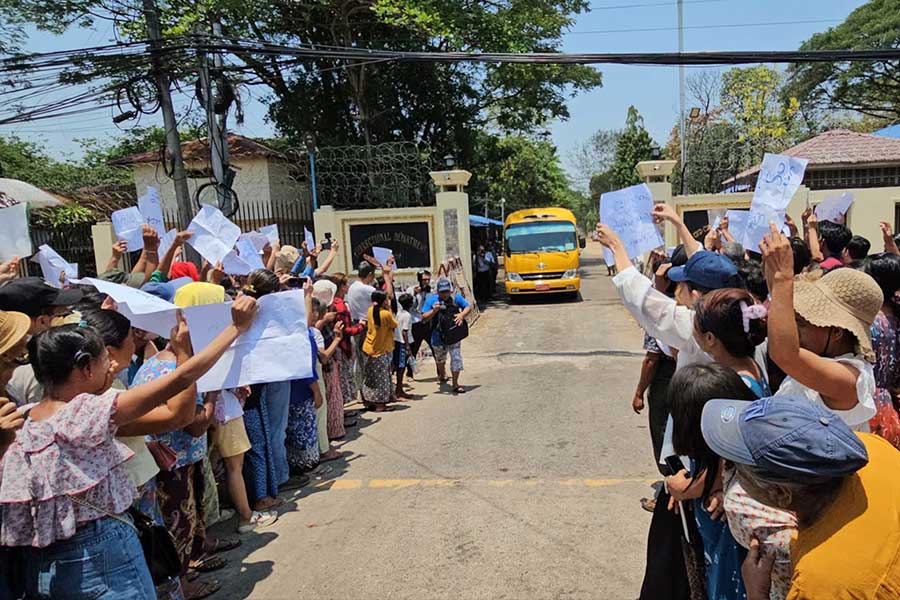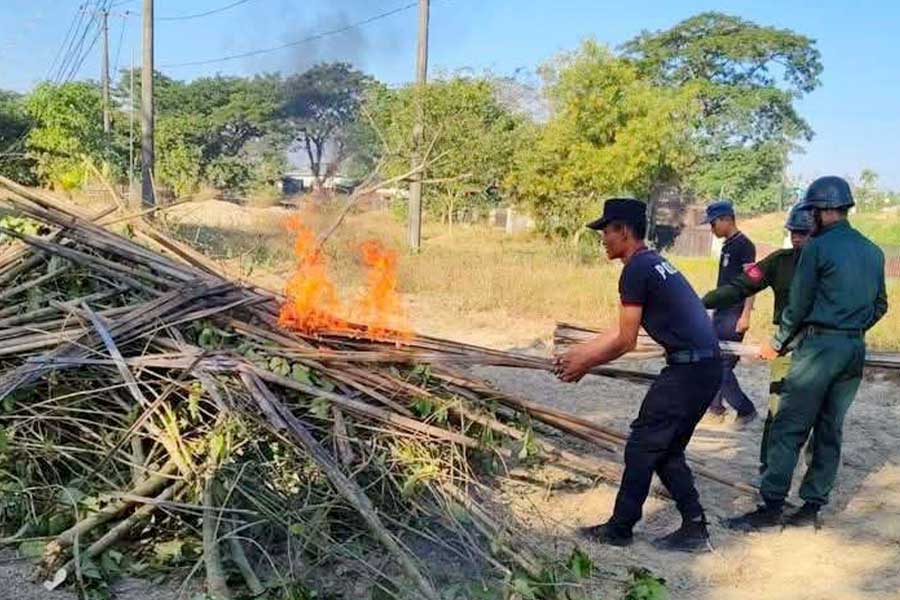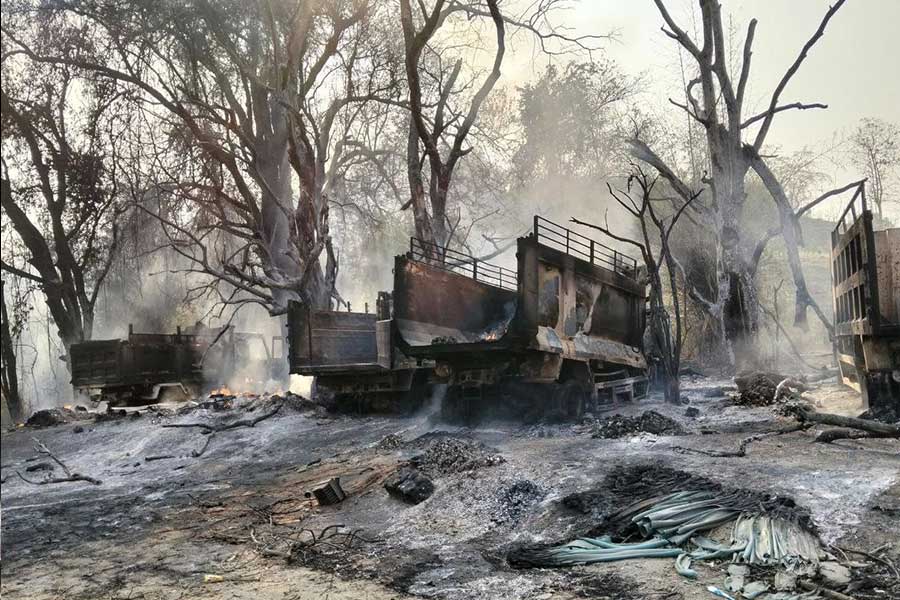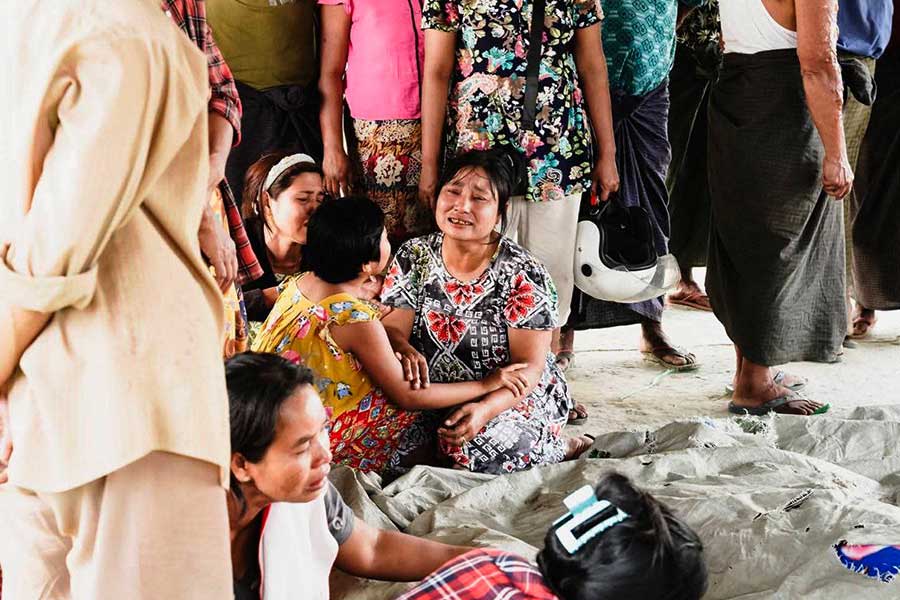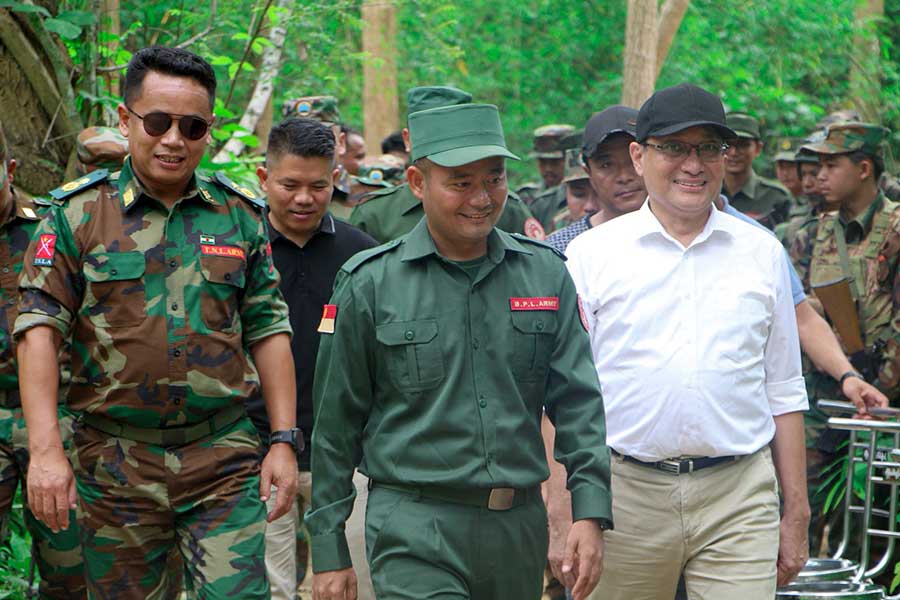- Weekly Highlights from Arakan (Feb 23 to March 1, 2026)
- Over 300 political prisoners freed from 10 prisons nationwide
- DMG Editorial: Between War and Opportunity - A New Border Reality for Bangladesh and Arakan
- Arakan Army sets five-year prison term for kratom cultivation in controlled areas
- Junta airstrikes kill over 25, including Arakanese merchants, in Mindon Twsp
Dr. Aye Maung questions Panglong as cornerstone of post-independence Myanmar
With Myanmar in a more politically tenuous position than it has been in decades, the prominent Arakanese politician Dr. Aye Maung has questioned the merits of a document considered by many to be foundational to modern Myanmar’s origin story.
07 Apr 2021
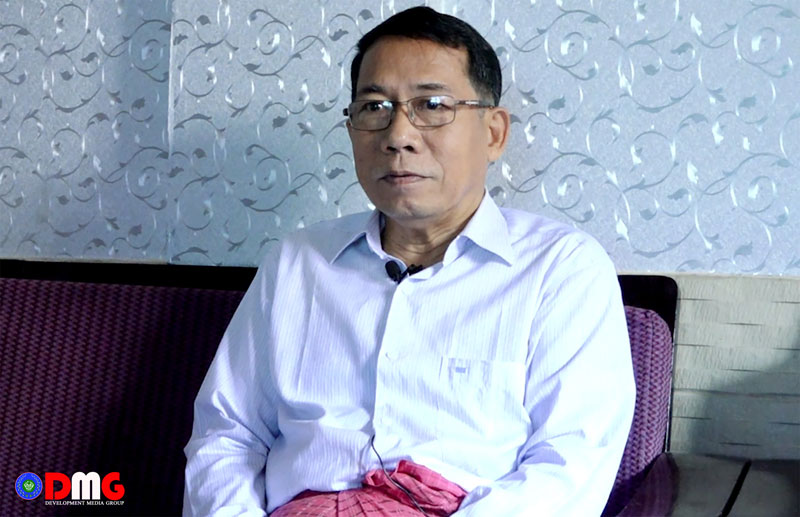
DMG Newsroom
7 April 2021, Sittwe
With Myanmar in a more politically tenuous position than it has been in decades, the prominent Arakanese politician Dr. Aye Maung has questioned the merits of a document considered by many to be foundational to modern Myanmar’s origin story.
In an interview with the DMG, Dr. Aye Maung said he doubts that it was right for Myanmar to gain independence based on the 1947 Panglong Agreement.
The Panglong Agreement was reached between the Burmese government under General Aung San and Shan, Kachin, and Chin leaders on February 12, 1947, for Burma Proper and frontier areas to gain independence from the British together.
“I doubt it was right for Myanmar to seek independence based on the 1947 Panglong Agreement. Did we have any shortcomings in signing the agreement in 1947 to gain independence? So, we need to reconsider. Why has there been such a serious civil war?” he said.
“Was it the right way to achieve independence under the 1947 Panglong Agreement? We need to take lessons from history.”
He said he understands the current Arakan crisis and the objectives of Arakanese people. The crisis in Arakan State still can’t be solved because the solutions are not correct, said Dr. Aye Maung.
Referring to the fighting that displaced more than 200,000 people in Arakan State from late 2018 to November 2020, Dr. Aye Maung said: “There has never been some 300,000 refugees in the history of Arakan State. Perhaps, there might have been [such a large number of refugees] during World War II.”
“There was not that large number of refugees even in the times of ideological conflicts when the BCP [Burmese Communist Party] and ACP [Arakan Communist Party] revolted.”
According to the Assistance Association for Political Prisoners, since the February 1 military coup, over 580 civilians have been killed and more than 2,700 people were detained by security forces as of Wednesday.
Moreover, Myanmar’s military and the powerful Karen National Union have been fighting each other in Karen State since last month. Fighting has also been reported between Myanmar’s military and the Kachin Independence Army in Kachin State.
More than 100,000 people have reportedly been affected by the fighting in those two states.
Meanwhile, Arakanese people are concerned that fresh clashes could break out between Myanmar’s military and the AA in Arakan State. However, Arakanese civil society organisations and activists have suggested there is little chance of renewed fighting in Arakan State over the short term.
In response to reports that Myanmar’s military has been bringing reinforcements into Arakan State, Dr. Aye Maung said fresh clashes are unlikely.




